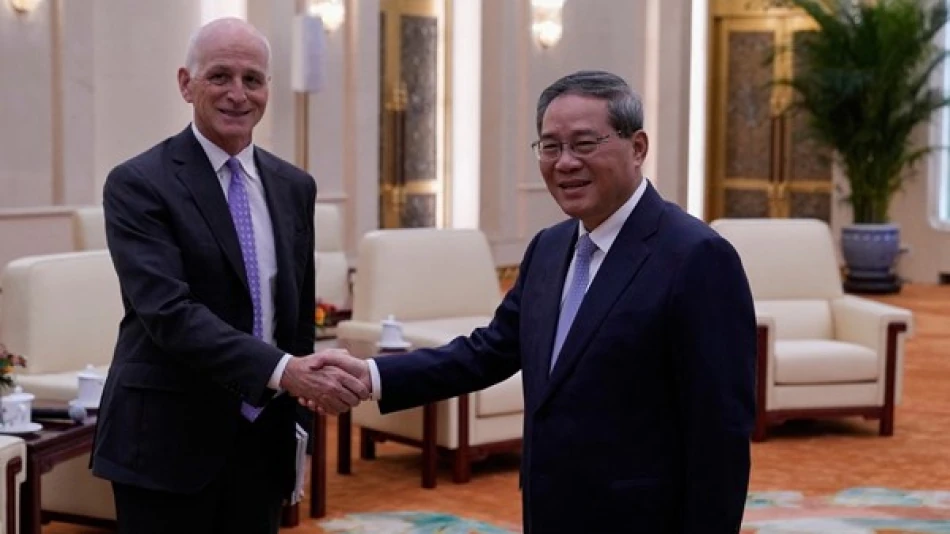
U.S. Congressional Delegation Visits China: Diplomatic Talks and Strategic Discussions
US Congress Makes First China Visit in Six Years as Trump Era Begins
A bipartisan group of US lawmakers met with Chinese Premier Li Qiang in Beijing Sunday, marking the first House delegation to visit China since 2019. The rare diplomatic encounter signals both nations are testing the waters for improved relations as tensions between the world's two largest economies show signs of thawing under Trump's return to power.
Breaking the Ice After Years of Silence
The timing tells the whole story. House visits to China stopped completely in 2020, right when COVID-19 and trade wars pushed US-China relations to their lowest point in decades. Now, just days after Trump and Xi Jinping held their first phone call since the election, American legislators are back in Beijing.
Democratic Representative Adam Smith, who leads the delegation, didn't mince words during the meeting. "China and the United States need to work harder to strengthen relations," he told Premier Li. "We can't have US House visits happening every six or seven years with such long gaps."
Why This Matters Now
Smith isn't just any congressman - he's the top Democrat on the House Armed Services Committee, which oversees the Pentagon and military spending. When someone with his security clearance shows up in Beijing, it sends a message that both sides want to talk, even about sensitive topics.
Premier Li apparently got the memo. According to the US Embassy, he said the visit could help "break the deadlock" in bilateral relations.
Trump's Shadow Over the Talks
Here's what makes this visit different from typical diplomatic theater: it happened right after Trump's phone call with Xi on Friday. That's not a coincidence.
Trump's first presidency brought us the trade war, tariffs on hundreds of billions in Chinese goods, and threats to ban TikTok. But it also gave us direct leader-to-leader communication that sometimes cut through the bureaucratic noise.
The Chinese leadership clearly remembers this. They know Trump prefers dealing directly with other strongmen rather than working through traditional diplomatic channels.
What's Really at Stake
Both countries have good reasons to want this relationship to work better. China's economy is struggling with a property crisis and weak consumer spending. The US faces inflation concerns and wants to avoid supply chain disruptions that could hurt American consumers.
For businesses and investors, any sign of US-China cooperation means less uncertainty. Markets hate unpredictability, and the past few years of escalating tensions have made long-term planning nearly impossible for companies operating in both countries.
The Military Dimension
Smith's presence adds a crucial element here. Military-to-military communication between the US and China has been practically non-existent lately. That's dangerous when you have two nuclear powers with competing interests in the South China Sea and Taiwan.
Professional military officers on both sides want communication channels that can prevent accidents from turning into conflicts. Smith's committee controls much of the Pentagon's budget, so his conversations in Beijing carry real weight.
Reading the Room
The fact that this delegation includes both Republicans and Democrats matters. It shows the Chinese that improving relations isn't just Trump's personal project - there's broader American interest in finding common ground.
But let's be realistic about what this visit can accomplish. One weekend in Beijing won't solve trade disputes, technology competition, or disagreements over Taiwan. What it can do is restart the habit of talking to each other like adults.
Smith put it simply: both countries need "more of this kind of exchange." After six years of mostly shouting past each other, that's actually a pretty reasonable place to start.
Most Viewed News

 Layla Al Mansoori
Layla Al Mansoori






